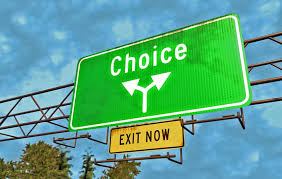Hi all. I’ve been low on energy for a couple of weeks, which is why I haven’t posted anything. Actually, depressed is the word. I have this whole world of opportunity waiting for me — a visit with the Dalai Lama! And yet I’m completely nonfunctional. I’ve been trying to start Book 2 for over a month, and it just seems like too much effort. At the same time, Isabel is highly stressed at work, and she brings it home with her (of course), so we argue more, which depletes my energy further.
The working title for my new book is: The Biology of Desire: Why Addiction is Not a Disease. You probably know my stance on that one. But the problem is: how to frame it in the current debate? The way I see it, most of the medical community, most if not all of the psychiatric community, most of the treatment community, and most of the scientists who study addiction (either behaviorally or neurally) do in fact see addiction as a disease. Nora Volkow, the head of NIDA (one of the nine branches of NIH) describes addiction as a disease every chance she gets. A chronic brain disease. So it’s important to refute that definition — if in fact it’s wrong. But the trouble is, you then get bogged down in this dichotomy: that if addiction is not a disease, it must be a choice.
The current spokesperson for that position is Carl Hart. Here’s the latest: a write-up and video, care of the New York Times.
 Hart brings crack addicts into the clinic, they stay there for awhile, and they are offered crack to smoke on a regular basis. But they are also offered a certain amount of money each time they forego the crack. And often they make that choice: they take the money instead. Sometimes for as little as $5, and almost
Hart brings crack addicts into the clinic, they stay there for awhile, and they are offered crack to smoke on a regular basis. But they are also offered a certain amount of money each time they forego the crack. And often they make that choice: they take the money instead. Sometimes for as little as $5, and almost  always when offered $20. In other words, addicts can choose not to partake of a highly addictive substance if they have alternative choices that are attractive. Hart deserves the credit he’s been getting for this research. He is showing that addiction is not a result of some property of a drug; it is the result of some property of the environment, namely the absence of opportunities to get rewards elsewhere. Hart compares his crack addicts to the poor, young, black, marginalized men he grew up with. He argues, very convincingly, that there were no other rewards (e.g., financial stability, steady interpersonal relationships, respectable jobs) available to them. So they chose to get high. According to Hart, it was a rational choice, given the available options.
always when offered $20. In other words, addicts can choose not to partake of a highly addictive substance if they have alternative choices that are attractive. Hart deserves the credit he’s been getting for this research. He is showing that addiction is not a result of some property of a drug; it is the result of some property of the environment, namely the absence of opportunities to get rewards elsewhere. Hart compares his crack addicts to the poor, young, black, marginalized men he grew up with. He argues, very convincingly, that there were no other rewards (e.g., financial stability, steady interpersonal relationships, respectable jobs) available to them. So they chose to get high. According to Hart, it was a rational choice, given the available options.
And by the way, Hart talks about the impact of environmental impoverishment on rats too. He reviews the famous “Rat Park” studies by Bruce Alexander, which I have written about elsewhere. Here is Alexander’s own commentary on what he found out about addiction and environment.
But I don’t agree that addiction is a rational choice. Just yesterday I got an email from a meth addict who’s in big trouble. Someone I don’t know. I had answered a desperate query from this person a couple of months ago, then again a couple of days ago, saying there wasn’t much I could do to help. Then I got this email yesterday:
I am unsure of what to do or where to turn next. I tried rehab once for a few days before my body became toxic and I ended up in the hospital for a week. It was only after I tried quitting that i fell ill close to death with a high fever,failing kidneys and toxemia. Now three years later I am that much more addicted and afraid that this is what will kill me ,and it wont be long. I dont know what I am more afraid of, being sick physically and dying or staying high, falling apart mentally ,and for things to never change. Maybe this is how it was meant to be? In which case life isnt worth living and my children might be better off without me. I wish there was an antidote.
That doesn’t sound like rational choice. And I get emails like that, more or less, once every week or two.
 I want to get into this debate, but where? The problem with the “choice” approach is that it completely ignores the brain. It relies on economic reasoning, not biological reasoning. But we are our biology, Our brains are not computers. They are inscribed with biases, attractions, associations, and habitual pathways of thought. Their fundamental modality is emotion — attraction and repulsion — not logic. And they really do change with addiction (as with other forms of learning). The evidence is indisputable. So, do we have to ignore the brain to oppose the disease model?
I want to get into this debate, but where? The problem with the “choice” approach is that it completely ignores the brain. It relies on economic reasoning, not biological reasoning. But we are our biology, Our brains are not computers. They are inscribed with biases, attractions, associations, and habitual pathways of thought. Their fundamental modality is emotion — attraction and repulsion — not logic. And they really do change with addiction (as with other forms of learning). The evidence is indisputable. So, do we have to ignore the brain to oppose the disease model?
I don’t think so. I want to talk about “choice” as a highly irrational mechanism. And there’s lots of research to back that up. See Kahneman’s recent book, for example. In fact, research shows that people think that they’ve made a deliberate choice after their brains have already decided what to do. Much of this literature is quite technical, but here’s an example. I want to model addiction as a biased choice, a choice that is not inevitable but is highly probable, given the attractions that are already engraved in our synapses.
I’ve got the book mapped out, of course. I just need the momentum to get over the hump of page one. But writing this post helps. Maybe today’s the day.

Leave a Reply